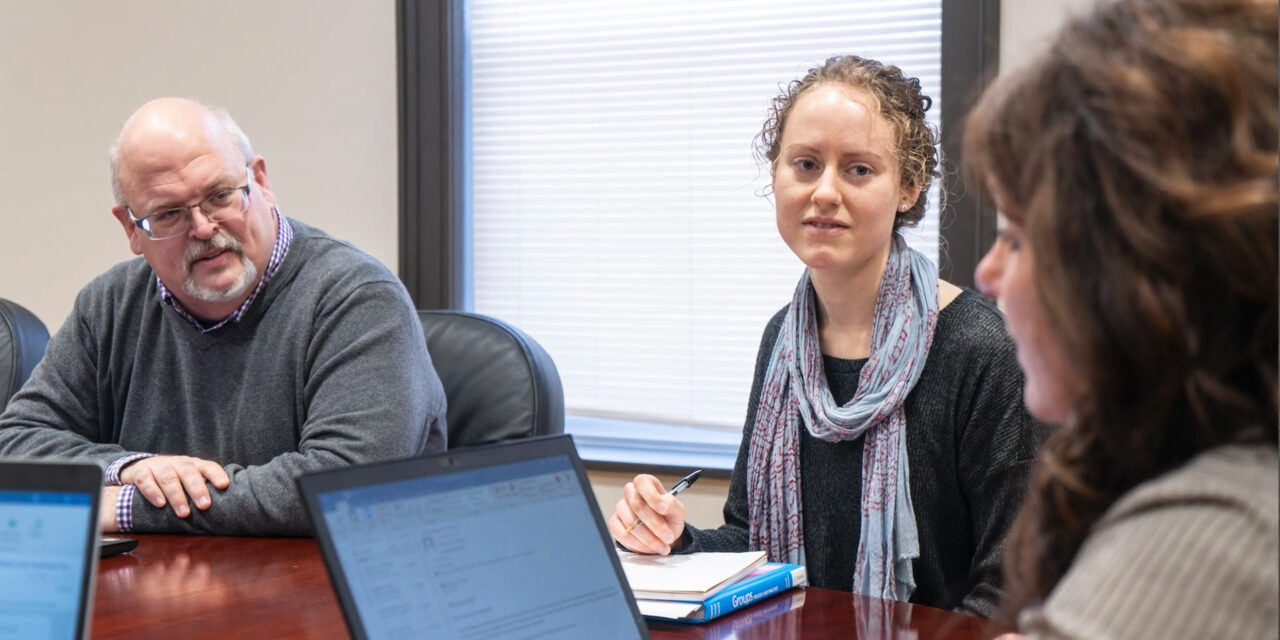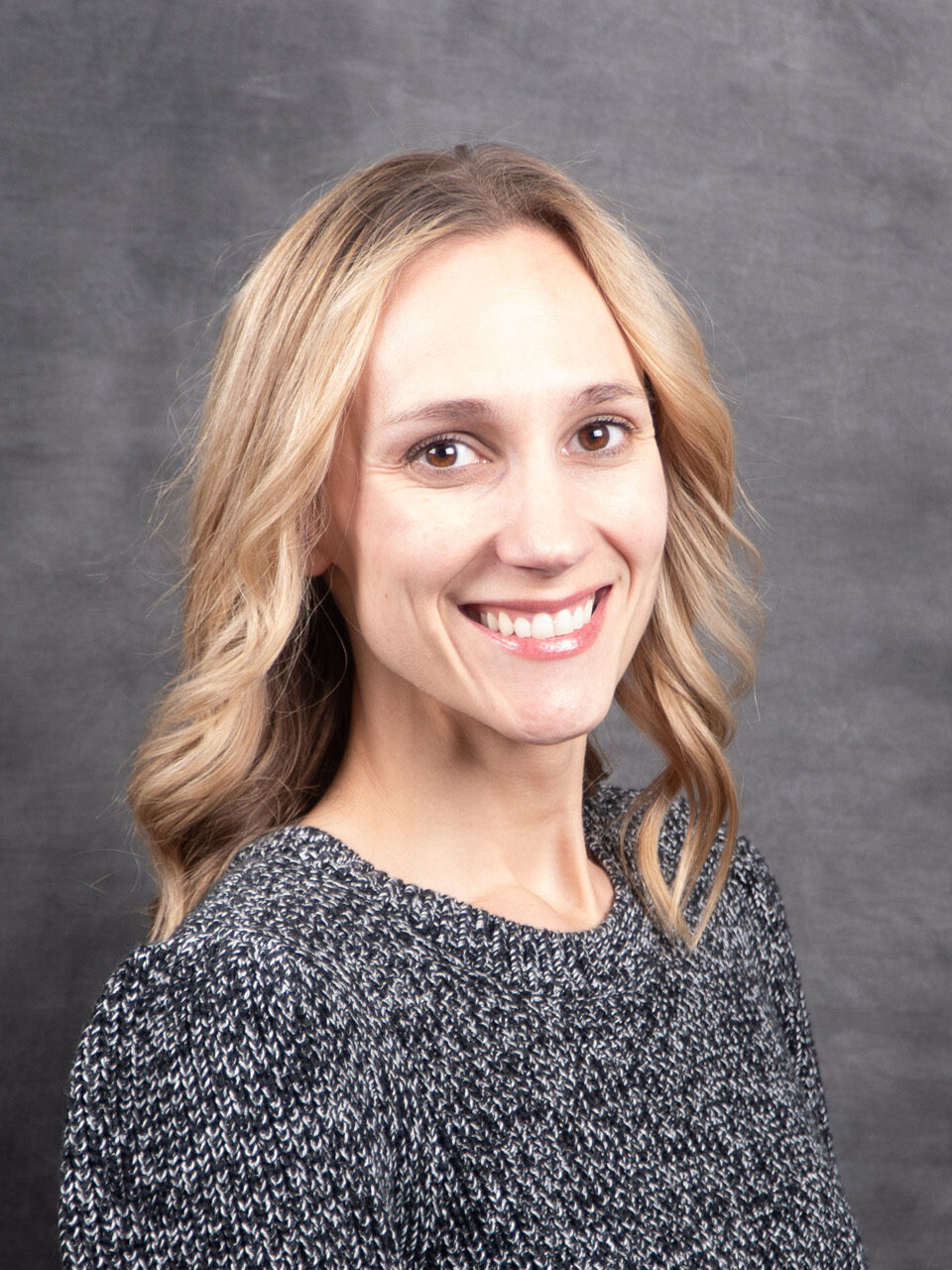Personalized attention. Professional growth. Community impact.
Help fill the growing need for exceptional future mental health counselors by earning your clinical mental health counseling degree. Gain the skills to assess, diagnose, and provide therapeutic interventions for individuals and groups experiencing mental health or emotional difficulties.
Learn about the foundational aspects of professional counseling, including ethical principles, multicultural competence, and professional standards. Study human development to acquire competency in the analysis of clients, including diagnosis, case conceptualization, and developmental considerations across the lifespan.
Beginning in fall 2024, each course will be held one morning per week, always ending before noon. Courses are primarily face-to-face on campus (one to two courses in the core curriculum plus summer electives will be online or hybrid). This will allow students to focus on their preparation as mental health counselors and balance needs outside of academia.
APPLICATION DEADLINES
Spring Semester: December 1
Summer Semester: April 1
Fall Semester: July 1
Dedicated Faculty
You’ll learn from doctoral-level faculty who are practicing professionals. Their knowledge in a range of specialty areas of study and professional networks leverages extensive field placements where you can meet both program and state criteria for practicum and internships.
Your Career
Graduates who become licensed mental health counselors work in a wide range of mental health service organizations, such as group practices and community counseling centers in Iowa, Wisconsin, Illinois, and Minnesota, as well as in private practice after full licensure.
State Licensure
Our program curriculum meets the licensure requirements for Iowa, Wisconsin, Illinois, and Minnesota, making obtaining a license in these states easy. If you desire to work in additional states, the program director meets with you individually to ensure licensure eligibility in those locations.
Addiction Track
Add an addictions track to your degree by completing just 3 additional courses required to become a Certified Alcohol and Drug Counselor (without adding any time to your overall Counseling degree completion length).
Quick Highlights
- On-campus morning classes
- 60 credits, three-year completion
- Fall, spring, and summer semester start
- Expand your credentials with an addictions counseling certification with no additional time
- Meets curriculum licensure requirements for Iowa, Wisconsin, Illinois, and Minnesota for greater opportunities

Admission Criteria & Eligibility
A holistic admission decision will be based on multiple factors, including your motivation for pursuing this degree, work history, volunteer activities, and other involvement.
- A minimum cumulative GPA of at least 2.75 (or 2.9 in the last 60 credits)
- Completion of at least 9 credits in the behavioral sciences
Application Checklist
Requirements, Outcomes & Schedule
This program aligns with CACREP curriculum standards. View the Loras College CMHC Annual Report.
Book a Chat
Schedule a personalized visit or a video chat to learn more about the curriculum, internships, outcomes, enrollment process, etc.
Get in Touch
Learn More
By requesting information, I authorize Loras College to contact me by email, phone, or text at the number provided. By providing your number, you consent to receive notifications from this organization. Reply STOP to unsubscribe. Message and data rates may apply.
Financial Aid
Advanced degrees are worth the investment. We have options to help you make your educational goal a reality, and financial aid helps open doors for your future.
Tuition & Fees
Understand the costs before applying. Review tuition, fees, and living expenses to create a realistic budget. Financial planning is key for advanced degree success.
Straight Talk from a Duhawk
Loras provided me the small campus experience I was seeking. I was able to form strong social connections, work closely with my instructors, and find employment during and after graduation.
— Brooke Martin, MA, LMHC, DBTC
Frequently Asked Questions
Graduate Programs FAQ
MEET YOUR PROFESSORS

Lindsey Bartgis PhD
Assistant Professor of Psychology

Laura Boddicker PhD tLMHC CRC
Assistant Professor of Counseling

Kirstin Lauritsen PhD LP
Assistant Professor of Psychology
Practicum and Internship Coordinator

Tracy Lipinski EdDc LSC
Assistant Professor of Counseling

Steffanie Schilder PhD, LP, LMHC, LPC
Associate Professor of Counseling
Clinical Mental Health Counseling Program Director

